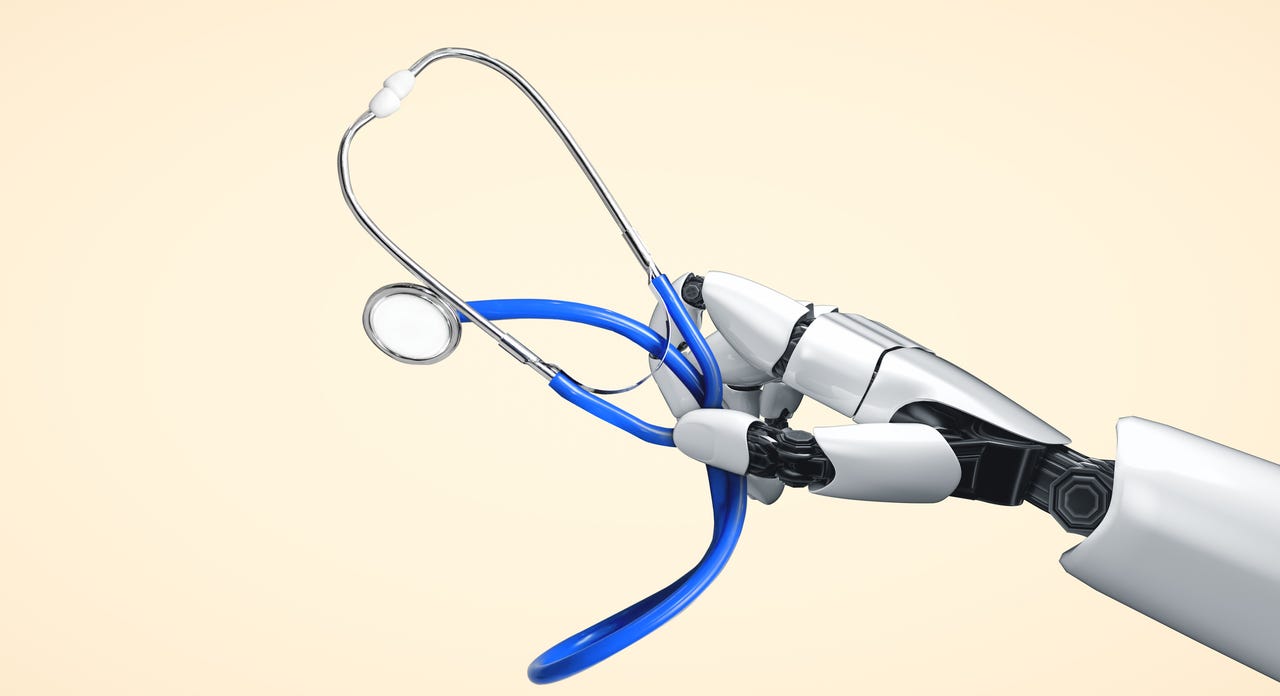
If a current Google test goes well, your next hospital visit might involve a little assistance from artificial intelligence (AI). According to recent reports, Google has been using its Med-PaLM-2 chatbot at the Mayo Clinic since April.
In a recent paper detailing work with the new AI, Google said that its Med-PaLM-2 chatbot had the ability to answer health-related questions and offer a diagnosis given symptoms. But the program can also do laborious tasks, such as summarizing a medical document or organizing patient data. In the future, Google hopes AI could even assist with analyzing an X-ray.
Also: AI bots have been acing medical school exams, but should they become your doctor?
The chatbot is based on the company’s Med-PaLM-2 language model, which was announced just a few months ago. Med-PaLM 2 is trained on medical demonstrations by experts, and questions and answers from medical-licensing exams, not just general language training. This training, Google said, makes the chatbot much better at health-related conversations than general chatbots.
Interestingly, Google said Med-PaLM-2 showed correct comprehension of a situation across almost every single metric. According to its analysis, the chatbot performed just as well as an actual person. In fact, the company said AI sometimes generated responses that were preferred over those of actual physicians.
Of course, it’s not perfect. Speaking on Med-PaLM-2 earlier this year, Google noted that the chatbot still suffered from accuracy issues that plague all similar products. For the most part, though, those inaccuracies were in the form of irrelevant answers.
Also: Generative AI could lower drug prices. Here’s how
Speaking about the company’s AI, a Google senior research director said Med-PaLM-2 is still in the early stages of development, and that he wouldn’t necessarily involve it in his “healthcare journey”. But he also said language models take AI applications in the medical world and “expands them by 10-fold”.
Naturally, this use of AI in healthcare does raise some privacy concerns. But Google said users’ health data will be encrypted and used exclusively by Med-PaLM-2 locally. Google as a corporation won’t have any access to that information.
Artificial Intelligence




















